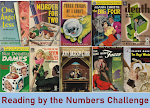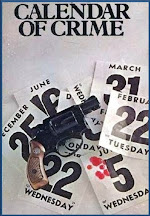 The 1927 trial of Ruth Snyder and her lover Judd Gray was a sensational story smack dab in the middle of the Jazz Age--the era of flappers, Prohibition, speakeasies, hot jazz, fast dancing, and fast-talkers. Ruth Snyder was a blue-eyed, blonde coquette who was married to a man she claimed was emotionally cruel to her and her daughter. Judd was a mild-mannered man who taught Sunday School and was (up till then) devoted to his rather plain and unexciting wife. Judd was also a salesman who dealt in ladies unmentionables who met Ruth through a mutual friend. He sold her one corset...for her mother (so she said) and before he knew it he had been swept up into a wild love affair.
The 1927 trial of Ruth Snyder and her lover Judd Gray was a sensational story smack dab in the middle of the Jazz Age--the era of flappers, Prohibition, speakeasies, hot jazz, fast dancing, and fast-talkers. Ruth Snyder was a blue-eyed, blonde coquette who was married to a man she claimed was emotionally cruel to her and her daughter. Judd was a mild-mannered man who taught Sunday School and was (up till then) devoted to his rather plain and unexciting wife. Judd was also a salesman who dealt in ladies unmentionables who met Ruth through a mutual friend. He sold her one corset...for her mother (so she said) and before he knew it he had been swept up into a wild love affair. Ruth became determined to be free from her emotionally remote, hyper critical husband and insured his life with a double indemnity policy. She and Judd then murdered her husband--staging a break-in and having her lover leave her tied up for the police to find. These two amateurs did a spectacularly poor job of it and it didn't take the officials long to trace the crime to its source. The newspapers had a field day covering their trial and splashing lurid details of their affair across the front page. It was one of the biggest crimes of the early twentieth century.
Hansen finds the historical details from the newspaper accounts, notes of the trial, memoirs by both Judd Gray and Ruth Snyder, and several historical books on the trial. He takes these materials and weaves a fictional backstory--fleshing out the disenchantment at home which drove Ruth and Judd into one another's arms and ultimately culminated in murder. He does a good job giving us a well-rounded look at our two lovers--though I was still left with a bit of a puzzle at the end. Why did such a nice guy as Judd allow himself to be maneuvered into a capitol crime? It also would have been nice if Hansen had been able to give the same attention to the victim as he did the lovers. We get a brief view of his sarcastic nature with Ruth--but we don't get a complete picture of him. It's difficult to tell if Ruth has built up the cruelty (to make Judd more willing to do the deed) or if her life really is as unbearable as she says. Having taken the poetic license as far as he did, it would not have been a stretch to give a bit more life to the husband. The other disappointment is that once the arrests have been made and the trial begins the story loses its fictional feel--becoming more of a factual account than fictional peek at how these two might have dealt with their plight.
Save for the final chapters, Hansen provides an interesting fictional account of what might have happened. The Roaring Twenties come alive and, like the period, the story moves at a fast, almost Charleston-type speed. Good solid story-telling. ★★★
[Finished on 2/18/17]






























No comments:
Post a Comment